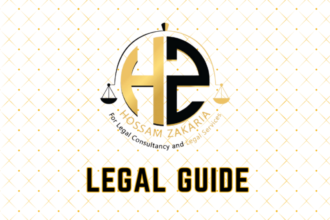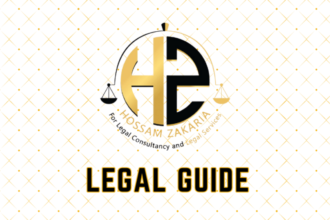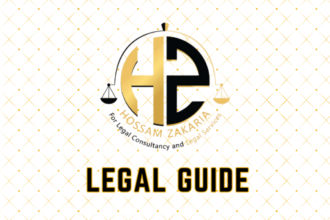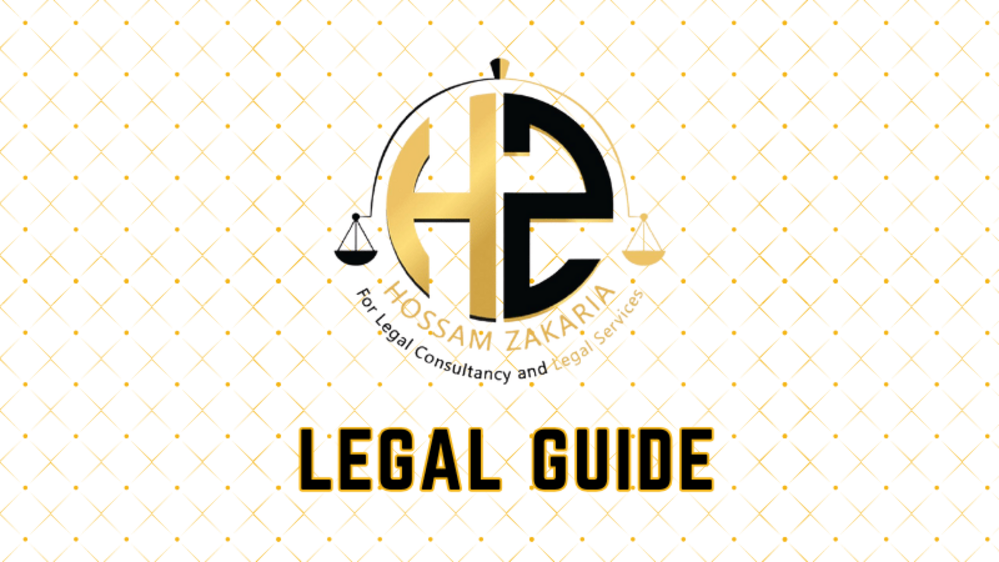Introduction: The Growing Significance of Arbitration Law in Qatar for UAE Stakeholders
As the business and investment landscape across the Gulf Cooperation Council (GCC) continues to evolve, arbitration law has become a focal point for UAE-based enterprises engaging with Qatari counterparts. The enhanced commercial ties between the United Arab Emirates and Qatar, particularly following the restoration of diplomatic relations, have been accompanied by a surge in cross-border contracts, joint ventures, and dispute resolution needs. Arbitration, as a premier mechanism for resolving commercial disputes in both jurisdictions, is now critical for legal leaders, corporate executives, and HR managers operating across the region.
Against this backdrop, understanding the intricacies of Qatar’s Arbitration Law—and its practical ramifications for UAE businesses—has never been more essential. This article provides a comprehensive, consultancy-grade analysis of Qatar’s main arbitration regulation, Law No. 2 of 2017 promulgating the Civil and Commercial Arbitration Law (the “Qatari Arbitration Law”). We explore how its provisions compare to recent UAE arbitration reforms, assess compliance risk, and offer actionable guidance on arbitration strategies for UAE legal practitioners and business leaders.
Why it matters now: With recent updates in both Qatari and UAE legislation—most notably the UAE Federal Law No. 6 of 2018 on Arbitration and recent Cabinet Resolutions—companies must ensure their contracts, dispute-resolution clauses, and compliance frameworks are future-ready. This briefing translates official legal sources and real-world examples into practical insights tailored for a sophisticated UAE audience.
Table of Contents
- Overview of Qatar’s Arbitration Law: Legal Framework and Context
- Breakdown of Key Provisions and their Import for UAE Companies
- Comparative Table: Qatar vs. UAE Arbitration Laws
- Practical Implications for UAE Businesses and Legal Leaders
- Case Studies and Hypothetical Scenarios
- Risk Assessment and Compliance Strategies
- Conclusion: Shaping the Future of Cross-Border Business Dispute Resolution
Overview of Qatar’s Arbitration Law: Legal Framework and Context
Evolution of Arbitration in Qatar: From Ad Hoc to Institutional Best Practice
Arbitration has a deep-rooted history in Qatar, but its modernisation was cemented with Law No. 2 of 2017. This law replaced the old arbitration provisions embedded in the Qatari Civil and Commercial Procedures Law, aligning Qatari practice more closely with international standards, particularly the UNCITRAL Model Law. The Qatari Arbitration Law regulates the conduct of both ad hoc and institutional arbitrations and has been designed to foster investor confidence and judicial recognition of arbitral awards.
Legal Sources and Regulatory Landscape
Key official sources for arbitration in Qatar include:
- Law No. 2 of 2017 (Qatari Arbitration Law): The primary statute governing arbitration.
- Qatar International Court and Dispute Resolution Centre (QICDRC): Institutional rules and oversight.
- Qatar Financial Centre (QFC) Regulations: Specific provisions for arbitration within the QFC.
This comprehensive legislative architecture is designed not only to attract international business, but also to create a reliable forum for resolving commercial disputes—including those involving UAE entities and expatriate investors.
The Rise of Arbitration in the GCC: Drivers and Trends
Arbitration’s growing prominence in Qatar reflects broader regional trends, including:
- Increasing complexity and value of cross-border transactions.
- Emphasis on legal certainty and enforceability of awards.
- Recognition of arbitral awards under international conventions (e.g., the New York Convention, to which both the UAE and Qatar are signatories).
Visual Suggestion: GCC Arbitration Law Map depicting key regional arbitration hubs and institutions.
Breakdown of Key Provisions and Their Import for UAE Companies
Arbitration Agreement Requirements
Article 7 of the Qatari Arbitration Law mandates written arbitration agreements, whether they are contained in contractual clauses, separate documents, or recorded exchanges (such as electronic correspondence). For UAE businesses, this means that meticulous drafting is essential, particularly to avoid later challenges to jurisdiction or enforceability.
Best practice use-case: A UAE construction firm entering a joint venture in Doha should ensure the arbitration agreement clearly specifies the seat, applicable rules (e.g., QICCA or ICC-Qatar), language, and process for appointing arbitrators. Failure to do so may result in costly jurisdictional disputes.
Jurisdiction and Competence of Arbitral Tribunals
Consistent with international standards, Qatari law upholds the principle of Kompetenz-Kompetenz (Article 23), empowering the tribunal to decide on its own jurisdiction. This provision shields arbitral proceedings from undue court interference, an aspect UAE legal managers should be aware of when arbitrating in or with Qatari entities.
Appointment and Challenge of Arbitrators
Law No. 2 of 2017 provides parties with significant autonomy in selecting arbitrators but imposes mechanisms for court appointments if parties cannot agree. Notably, Article 11 disqualifies arbitrators with conflicts of interest, lack of independence, or legal incapacity. UAE legal teams must conduct conflict and eligibility checks to safeguard the integrity of the process.
Procedural Flexibility and Party Autonomy
Qatari law grants parties freedom to choose arbitration rules (institutional or ad hoc), language, venue, and process (Article 19). In practice, many cross-border agreements select institutional administration (QICCA or ICC Rules in Qatar), which often provides greater certainty and procedural support than ad hoc frameworks.
Interim Measures and Court Assistance
Article 17 authorizes arbitral tribunals to order interim or conservatory measures, with Qatari courts empowered to enforce such orders if the parties or tribunal so request. For a UAE business seeking to preserve assets or prevent dissipation during a dispute, this provision offers a valuable legal recourse.
Confidentiality
Confidentiality is an opt-in feature under Qatari law unless otherwise agreed (Article 33). UAE in-house counsel should therefore consider explicit confidentiality provisions in arbitration clauses to protect business-critical information.
Arbitral Awards and Enforcement
Articles 31–34 address the making, challenge, and enforcement of awards. Qatari courts generally support enforcement in line with the New York Convention, unless public policy is at stake. For UAE stakeholders, this means greater confidence in the enforceability of Qatari arbitral awards, and vice versa.
Comparative Table: Qatar vs. UAE Arbitration Laws
| Provision | Qatar Law (No. 2/2017) | UAE Law (Federal Law No. 6/2018) |
|---|---|---|
| Model Law Basis | UNCITRAL Model Law (adapted) | UNCITRAL Model Law (adapted) |
| Written Agreement Requirements | Strict, incl. electronic communications | Strict, incl. electronic communications |
| Seat/Place of Arbitration | Party autonomy (within/outside Qatar) | Party autonomy (within/outside UAE) |
| Appointment of Arbitrators | Party autonomy; court assistance | Party autonomy; court assistance |
| Confidentiality | Opt-in (unless agreed) | Implied unless parties agree otherwise |
| Interim Measures | Permitted, court enforceable | Permitted, court enforceable |
| Challenging Awards | Limited grounds (incl. public policy) | Limited grounds (incl. public policy) |
| Recognition/Enforcement | New York Convention standards | New York Convention standards |
| Time Limit for Award | 12 months, extendable | 6 months, extendable |
| Institutional Support | QICCA, ICC-Qatar | DIAC, ADCCAC, DIFC-LCIA |
Visual Suggestion: Comparative compliance checklist for UAE and Qatari arbitration, highlighting key differences and interoperability tips.
Practical Implications for UAE Businesses and Legal Leaders
Drafting Robust Arbitration Clauses
Ensuring the enforceability of arbitration agreements is paramount for UAE participants in Qatari ventures. Key recommendations include:
- Precise language: Ambiguity over seat, rules, or scope can undermine jurisdiction.
- Express choice of law and venue: Identify whether Qatari, UAE, or a neutral location/law applies.
- Opt-in confidentiality: Include clear language if privacy is desired.
- Alignment with international conventions: Reference the New York Convention to bolster enforceability.
Dealing with Parallel Proceedings and Jurisdictional Challenges
Cross-border disputes may trigger parallel litigation in both Qatar and the UAE. Proactive legal strategies include:
- Using institutional rules that address parallel proceedings (e.g., ICC Rules on Multiple Contracts/Parties).
- Including anti-suit or anti-arbitration injunctions if risk is high.
- Early engagement with specialist arbitration counsel.
Recent Legal Updates Influencing UAE-Qatar Arbitration
Recent amendments in the UAE, such as Cabinet Resolution No. 57 of 2018 concerning the Executive Regulations of Civil Procedure Law, have streamlined cross-border enforcement and alignment with international standards. Awareness of these updates is critical when negotiating dispute resolution clauses in contracts involving Qatari partners.
Case Studies and Hypothetical Scenarios
Case Study 1: Construction Dispute Between UAE Contractor and Qatari Developer
A UAE-based construction company is engaged in a multi-million dirham infrastructure project in Qatar. The contract specifies QICCA arbitration in Doha, in English. A dispute arises regarding delays and alleged defects. The Qatari tribunal, relying on Article 23, asserts jurisdiction despite the Qatari developer’s attempt to litigate the matter in local courts, citing the public policy exception. The tribunal rules in favor of the contractor, awarding damages. The Qatari court enforces the award, referencing the New York Convention. Key takeaway: Clear arbitration clauses and an independent tribunal lead to swift dispute resolution and effective enforcement in both jurisdictions.
Hypothetical Example: HR/Employment Dispute with a UAE National Seconded to Qatar
A UAE enterprise seconds a senior HR manager to its Qatari subsidiary. The secondment agreement includes ICC arbitration seated in Dubai. Following a termination dispute, the employee initiates proceedings in Qatar, but the Qatari court refers the dispute to arbitration in line with the contract, recognizing the validity of cross-border arbitration arrangements. Consultancy insight: Explicit cross-reference of seat and rules is essential, and awareness of jurisdictional gateways is required to avoid conflicting court/arbitral authority.
Risk Assessment and Compliance Strategies
Risks of Non-Compliance with Arbitration Provisions in Qatar
- Delays and costs from jurisdictional challenges or nullification of awards due to flawed agreements.
- Exposure to local litigation or adverse judgments where inadequate arbitration clauses exist.
- Data and confidentiality risks for parties failing to opt into privacy provisions.
- Wasted resources on enforceability disputes and appeals in Qatari or UAE courts.
Practical Compliance Checklist
| Compliance Requirement | Action | Best Practice Tip |
|---|---|---|
| Valid Arbitration Clause | Ensure every contract contains carefully drafted arbitration clauses. | Engage qualified legal counsel to vet clauses. |
| Choice of Seat/Rules | Specify city/country and relevant rules (e.g., QICCA, ICC, DIAC). | Avoid ambiguity with express statements. |
| Arbitrator Eligibility | Confirm independence, expertise, and compliance with Qatari requirements. | Conduct conflict checks pre-appointment. |
| Confidentiality | Clearly opt in via contract provisions. | Directly address confidentiality in negotiations. |
| Enforcement Procedures | Align with New York Convention standards for reciprocal enforcement. | Engage local enforcement counsel early. |
Visual Suggestion: Penalties chart for defective arbitration clauses or failed enforcement in Qatari courts.
Strategic Recommendations for UAE Legal Leaders
- Arbitration Due Diligence: Proactively review and update legacy contracts involving Qatari partnerships to comply with current legislative requirements.
- Capacity Building: Train in-house legal teams on recent updates to both UAE and Qatari arbitration law, including best practices for drafting, appointing, and enforcing.
- External Legal Counsel: Early engagement with regional or international arbitration specialists reduces risk and supports strategic outcomes.
- Stakeholder Awareness: Educate business units, commercial teams, and HR about the significance of arbitration law and cross-border dispute protocols.
Conclusion: Shaping the Future of Cross-Border Business Dispute Resolution
As economic and diplomatic links between the UAE and Qatar continue to deepen, arbitration is increasingly the dispute resolution method of choice for sophisticated cross-border businesses. Qatar’s arbitration regime—robust, modernised, and aligned with global best practices—offers UAE enterprises both opportunity and accountability. By focusing on best-in-class drafting, proactive compliance, and continual monitoring of legal developments, UAE business leaders and legal counsel can minimise risk and maximise their contractual rights in Qatar.
In light of ongoing updates to both UAE and Qatari legislation, it is prudent to regularly review and harmonise dispute resolution policies, ensuring they reflect current legal standards. The future of GCC commerce will be shaped by those businesses that master not only the technicalities of arbitration law, but also its practical, strategic application in a dynamic regulatory environment.
Best practice moving forward: Establish a recurring legal audit process for all cross-border contracts, invest in stakeholder training, and collaborate with specialist arbitration counsel to future-proof your commercial interests in Qatar and across the GCC.
Final Visual Suggestion: Arbitration process flowchart from contract negotiation to award enforcement across UAE and Qatar.



